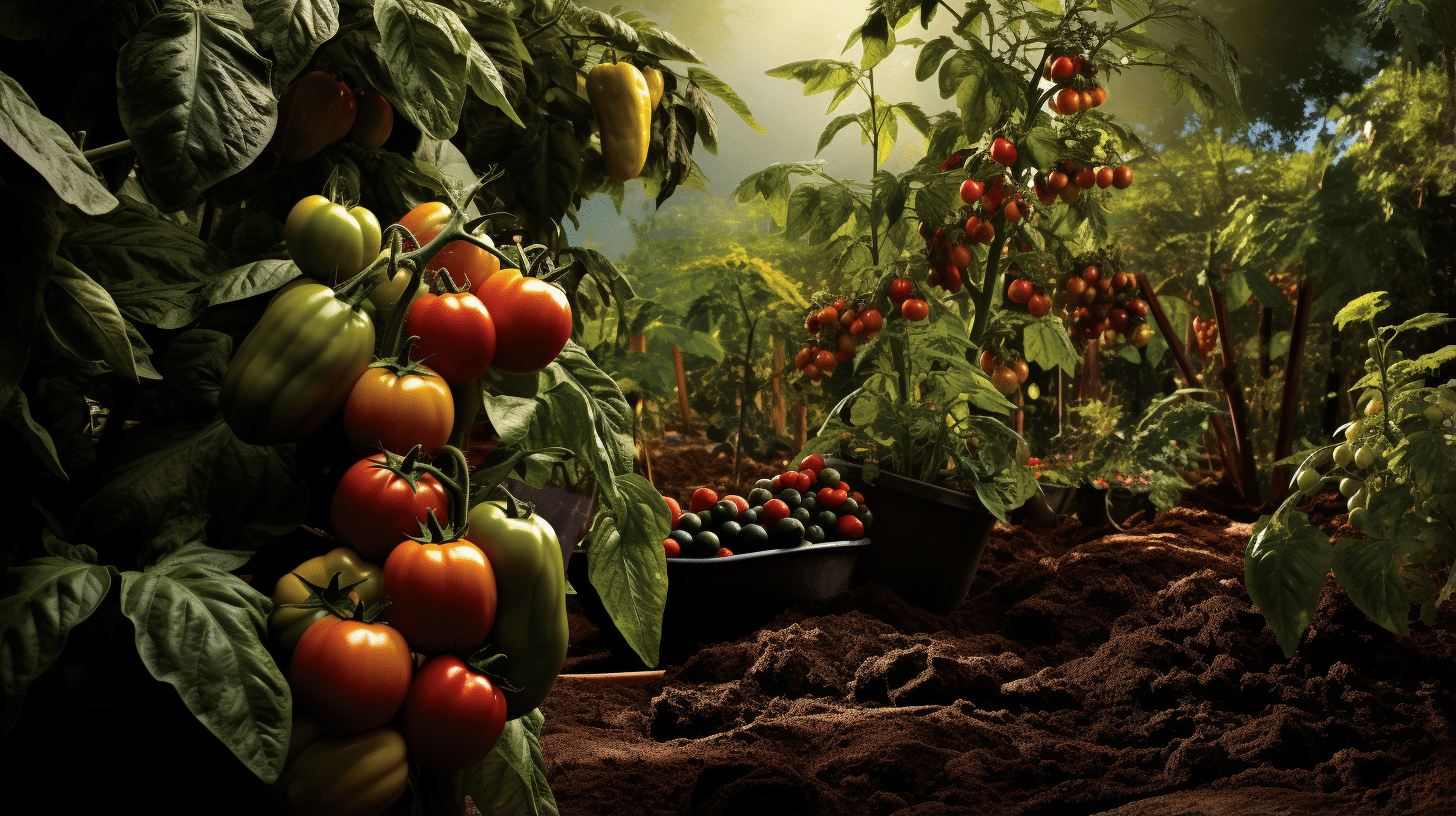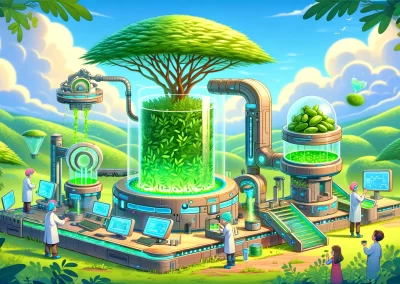What plant benefits most from coffee grounds? The grounds are a popular and readily available source of organic matter for gardeners. They are a rich source of nitrogen, phosphorus, and potassium, which are essential nutrients for plant growth. However, not all plants benefit from coffee grounds in the same way. In this article, we will explore which plants benefit most from coffee grounds and how to use them effectively.
Are an excellent source of nutrients for acid-loving plants such as azaleas, blueberries, and rhododendrons. These plants thrive in soil with a pH between 4.5 and 6.0, and can help to lower the pH of the soil. They also contain a high level of organic matter, which can improve soil structure and water retention. However, it is important to use coffee grounds in moderation, as too much can make the soil too acidic and harm the plants.
In addition to acid-loving plants, coffee grounds can also benefit vegetable plants such as tomatoes, peppers, and eggplants. These plants require a lot of nutrients to produce healthy fruits, and can provide a boost of nitrogen and other essential nutrients. However, it is important to balance the use of them with other sources of organic matter, such as compost and manure, to avoid over-fertilizing the soil.
Understanding Coffee Grounds
They are the leftover residue from brewing coffee. Also rich in nitrogen, phosphorus, and potassium, which are essential nutrients for plant growth. They also contain caffeine, which is a natural insecticide and can help repel pests from plants.
When using them as a fertilizer, it’s important to note that they are acidic and can lower the pH of the soil. This can be beneficial for acid-loving plants, such as blueberries, azaleas, and rhododendrons, but can be harmful to plants that prefer alkaline soil.
It’s recommended to mix with other organic matter, such as compost, to balance out the acidity and provide a well-rounded nutrient source for plants. Additionally, it’s important to avoid using too much coffee grounds, as they can create a compacted layer in the soil and prevent water and nutrients from reaching the roots.
Overall, they can be a beneficial addition to a plant’s diet, but it’s important to use them in moderation and in conjunction with other organic matter.
The Benefits of Coffee Grounds for Plants
Coffee grounds are a valuable source of nutrients for plants. They contain a variety of essential minerals and organic matter that can help plants grow and thrive. Here are some of the key benefits of using coffee grounds in your garden:
- Nitrogen: Coffee grounds are a rich source of nitrogen, an essential nutrient that plants need to grow. Nitrogen is a key component of chlorophyll, the molecule that gives plants their green color and helps them convert sunlight into energy. Adding coffee grounds to your soil can help boost nitrogen levels and promote healthy growth.
- Compost: Coffee grounds are an excellent addition to compost piles. They break down quickly and help create a rich, fertile soil that is perfect for growing plants. When added to compost, coffee grounds can help speed up the decomposition process and create a nutrient-rich soil that is perfect for growing vegetables, flowers, and other plants.
- Organic Matter: Coffee grounds are a great source of organic matter, which is essential for healthy soil. Organic matter helps improve soil structure, retain moisture, and provide a habitat for beneficial microorganisms. By adding coffee grounds to your soil, you can help improve its overall health and fertility.
- Fertilizer: Coffee grounds can be used as a natural fertilizer for plants. They contain a variety of essential minerals, including phosphorus, potassium, and magnesium, that can help promote healthy growth. To use coffee grounds as a fertilizer, simply sprinkle them around the base of your plants and gently work them into the soil.
In summary, they are a valuable source of nutrients and organic matter for plants. They can help improve soil health, boost nitrogen levels, and promote healthy growth. By incorporating them into your gardening routine, you can help create a thriving, vibrant garden that is full of life.
Coffee Grounds and Soil Health
Coffee grounds are a popular organic soil amendment used by gardeners to improve soil health. They are a rich source of nitrogen, phosphorus, and potassium, which are essential nutrients for plant growth. The grounds also contain other minerals such as calcium, magnesium, and sulfur, which can help maintain soil pH levels.
Soil pH is an important factor in determining plant health. Most plants prefer slightly acidic soil with a pH level between 6.0 and 7.0. Coffee grounds are acidic and can lower soil pH levels, making them an ideal soil amendment for alkaline soil. However, it is important to note that excessive use of coffee grounds can make soil too acidic, which can harm plants.
In addition to improving soil pH, they can also improve soil structure. They are coarse and fibrous, which can help improve soil aeration and drainage. Coffee grounds can also attract earthworms, which are important for soil health as they help break down organic matter and improve soil structure.
When using them as a soil amendment, it is important to use them in moderation. A general rule of thumb is to use no more than 10-20% in soil mixes or as a top dressing. It is also important to mix them with other organic matter such as compost or leaf mold to prevent the soil from becoming too acidic.
Overall, coffee grounds can be a beneficial soil amendment when used correctly. They can improve soil pH, structure, aeration, and drainage, which can ultimately lead to healthier plants.
Coffee Grounds and Pest Control
Coffee grounds can be an effective and natural way to control pests in the garden. The caffeine and other compounds found in coffee can repel or even kill insects and other garden pests. Here are some ways coffee grounds can be used for pest control:
Ants
Ants can be a common problem in gardens, and coffee grounds can help keep them away. Sprinkle coffee grounds around the base of plants or on ant trails to deter them from entering the area. The strong scent of coffee can also mask the pheromone trails that ants use to navigate, making it harder for them to find their way back to the nest.
Slugs and Snails
Slugs and snails can be a major nuisance in the garden, but coffee grounds can help keep them at bay. Sprinkle coffee grounds around the base of plants or on the soil surface to create a barrier that slugs and snails will be reluctant to cross. The abrasive texture of coffee grounds can also help to deter them.
Pest Control
Coffee grounds can be used as a general pest control measure in the garden. Mix coffee grounds with water to create a spray that can be used on plants to repel insects and other pests. The caffeine and other compounds in coffee can be toxic to some insects, making it an effective natural pesticide. However, it’s important to note that coffee grounds can also attract some pests, such as fruit flies, so use with caution.
In summary, coffee grounds can be a useful tool for natural pest control in the garden. Whether you’re dealing with ants, slugs, or other pests, coffee grounds can help keep them away without the use of harmful chemicals.
Specific Plants That Benefit from Coffee Grounds
Coffee grounds are an excellent source of nitrogen, potassium, and phosphorus, which are essential nutrients for plants. However, not all plants benefit from coffee grounds. In this section, we will discuss specific plants that benefit the most from coffee grounds.
Acid-Loving Plants
Acid-loving plants such as azaleas, hydrangeas, and rhododendrons thrive in acidic soil. Coffee grounds are acidic, which makes them an excellent fertilizer for these plants. Coffee grounds also help to increase the organic matter in the soil, which improves soil structure and water retention.
Houseplants
Houseplants such as Christmas cactus, jade, African violet, and cyclamen benefit from coffee grounds. Coffee grounds help to improve soil drainage and aeration, which is essential for the growth of houseplants. Coffee grounds also help to repel pests such as ants, slugs, and snails.
Vegetable Plants
Vegetable plants such as cabbage, peppers, radishes, carrots, parsley, and potatoes benefit from coffee grounds. Coffee grounds help to improve soil fertility and drainage, which is essential for the growth of vegetables. Coffee grounds also help to repel pests such as nematodes and slugs.
Flowering Plants
Flowering plants such as camellia, roses, flowering perennials, and flowering houseplants benefit. Coffee grounds help to improve soil fertility and drainage, which is essential for the growth of flowering plants. They also help to repel pests such as aphids and snails.
In conclusion, coffee grounds are an excellent source of nutrients for plants. However, it is essential to use them in moderation and avoid using them on plants that do not benefit from them. By using the grounds on specific plants, gardeners can improve soil fertility, drainage, and repel pests.
Using Coffee Grounds in Your Garden
They can be a great addition to your garden, providing numerous benefits to your plants. Here are a few tips on how to use them in your garden:
Composting
Coffee grounds are a great addition to your compost pile or bin. They are a source of nitrogen, which is essential for plant growth. However, it’s important to balance the nitrogen with carbon-rich materials like leaves or shredded paper to prevent the compost from becoming too acidic.
Mulch
Coffee grounds can also be used as a mulch around plants. They help retain moisture in the soil and can suppress weeds. However, it’s important not to use too much as they can form a hard crust on the soil surface, preventing water from penetrating.
Gardening
When adding directly to the soil, it’s important to mix them in well. This will prevent the nitrogen from being released too quickly, which can burn plant roots. It’s also important not to use too much coffee grounds, as they can lower the pH of the soil, making it too acidic for some plants.
Overall, they can be a great addition to your garden, but it’s important to use them in moderation and balance them with other materials. By doing so, you can help improve the health and growth of your plants.
Precautions When Using Coffee Grounds
While providing many benefits to plants, there are a few precautions that should be taken when using them. Here are some important things to keep in mind:
Avoid Overuse
Coffee grounds are acidic and can affect the pH balance of soil. Therefore, it is important to use them in moderation. Using too many can make the soil too acidic, which can harm plants and inhibit their growth. It is recommended to use no more than 25% in potting soil or compost.
Use Fresh Coffee Grounds
Contain a high amount of nitrogen, which is essential for plant growth. However, this nitrogen content decreases over time. Therefore, it is best to use fresh coffee grounds for maximum benefits.
Mix Coffee Grounds with Other Organic Matter
Should not be used alone as a fertilizer. They should be mixed with other organic matter such as leaves, grass clippings, or other compost materials. This will help balance the nitrogen content and provide essential nutrients for the plants.
Avoid Using Coffee Grounds Around Dogs and Cats
The grounds can be harmful to dogs and cats if ingested. Therefore, it is important to keep them away from pets.
Do Not Use Coffee Grounds on Acid-Loving Plants
They are not suitable for all plants. Acid-loving plants such as azaleas, rhododendrons, and blueberries can benefit from coffee grounds, but other plants may not thrive with the additional acidity.
Monitor Soil Moisture
Coffee grounds can absorb water and make soil more compact. It is important to monitor soil moisture and ensure that it does not become too dry or compact.
By following these precautions, gardeners can enjoy the benefits without any negative effects on their plants.
Coffee Grounds and Plant Nutrition
Coffee grounds are a popular organic material that can be used in gardening. They are a good source of nutrients, including nitrogen, phosphorus, and potassium. These nutrients are essential for plant growth and development.
Nitrogen is one of the most important nutrients for plants. It is essential for the growth of leaves and stems. Grounds are nitrogen-rich, which makes them an excellent source of this nutrient for plants. Nitrogen is also important for the development of chlorophyll, which is necessary for photosynthesis.
Phosphorus is another essential nutrient for plants. It is necessary for root growth and flower development. Coffee grounds contain phosphorus, which makes them a good fertilizer for plants that require this nutrient.
Potassium is a nutrient that plants need for strong stems and roots. It also helps plants resist disease and stress. Coffee grounds contain potassium, which makes them a good fertilizer for plants that require this nutrient.
In addition to these nutrients, coffee grounds also contain other minerals, including magnesium, calcium, and zinc. These minerals are important for plant growth and development.
Coffee grounds can also help improve soil structure. They contain carbon, which is a component of organic matter. Organic matter is important for soil health because it helps improve soil structure and water retention. Worms are also attracted to coffee grounds, which can help improve soil structure and nutrient availability.
Overall, they are a good source of nutrients for plants. They are nitrogen-rich, contain phosphorus and potassium, and also provide other important minerals. Using them in gardening can help improve soil structure and provide essential nutrients for plant growth and development.
Additional Tips for Using Coffee Grounds
They can be a great addition to your gardening routine, but there are a few things to keep in mind to ensure the best results. Here are some additional tips for using them with your plants:
- Use them sparingly: While they can be beneficial for plants, they should be used in moderation. Too much coffee can actually harm plants by making the soil too acidic. A good rule of thumb is to use no more than a half-inch layer around your plants.
- To avoid the risk of making the soil too acidic, mix them with other organic matter, such as leaves or grass clippings. This will help balance the pH levels in the soil.
- Avoid using on lilies: While they can be beneficial for many plants, using them should be avoided when it comes to lilies. Lilies are sensitive to caffeine and can be harmed by the chemical compounds found in coffee.
- Use for seedlings: Grounds can be a great addition to seedlings, as they can help improve texture and promote healthy growth. Mix with potting soil when planting seedlings to give them a boost.
- Use for crops: The grounds can be particularly beneficial for crops such as tomatoes, peppers, and blueberries. The added nutrients can help improve the quality of the crop and promote healthy growth.
- Use for blooms: They can also help promote blooms in plants. The added nutrients can help improve flower color and size.
By following these additional tips, you can use the grounds to help your plants thrive. Just remember to use them sparingly and mix them with other organic matter to avoid making the soil too acidic.
You may like this article.










